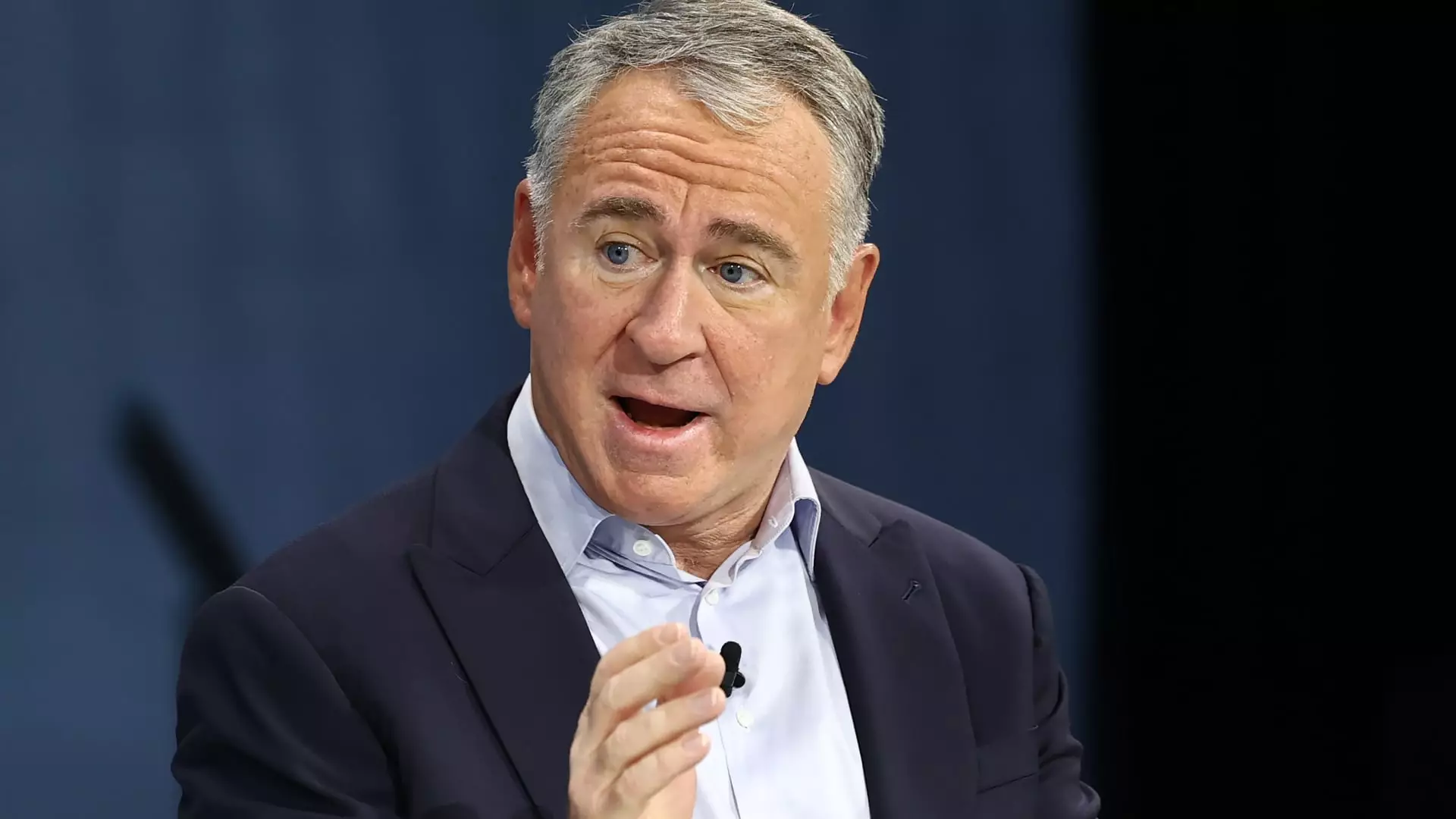In a recent address at the UBS Financial Services Conference in Key Biscayne, Florida, Ken Griffin, the CEO of Citadel and a prominent figure in the finance sector, offered a stark observation regarding the repercussions of President Donald Trump’s inflammatory trade policies. Griffin’s comments reflect a growing concern among financial leaders about the potential risks associated with such an aggressive stance on trade. Calling Trump’s approach “bombastic rhetoric,” Griffin articulated that these strategies are damaging to both the United States’ economic credibility and its long-term partnerships on the global stage. His foresight highlights a critical intersection of finance and international relations that cannot be overlooked.
Griffin’s remarks came shortly after President Trump enacted significant tariffs of 25% on steel and aluminum imports, following earlier measures that included a 10% duty on all Chinese goods. This series of protectionist actions has stirred considerable anxiety among multinational corporations, which are often reliant on stable trade conditions to strategize future investments. Griffin’s argument centers on the unpredictability created by such tariffs, suggesting that they not only threaten current trade arrangements but also sow seeds of doubt among CEOs and policymakers regarding future commitments from the United States. The ripple effect of these tariffs could hinder corporate planning, leading to a reluctance to engage in expansive or long-term projects that require substantial capital outlay.
For companies operating on a global scale, the rhetoric surrounding tariffs can profoundly shape operational and strategic decisions. Griffin implies that the contemplative lull brought on by increased trade tensions makes it increasingly difficult for multinationals to project their business activities into the next 5, 10, or even 20 years. Companies thrive in environments where they can predict market trends and react accordingly; however, uncertainty introduced by punitive tariffs can lead to hesitance in capital expenditures. The need for stability in international trade agreements becomes crucial for sustained economic growth and corporate profitability.
Moreover, Griffin has warned about the potential ascent of crony capitalism as a side effect of such trade measures. This system, characterized by the collusion between business elites and government officials, could arise from an atmosphere where tariffs and trade negotiations become the norm, rather than the exception. With business interests influencing policymaking, the focus may shift from equitable economic growth to self-serving agendas that disproportionately favor those in power. This scenario could ultimately undermine free-market principles, stifling competition and innovation to the detriment of the broader economy.
In light of Griffin’s insights, it becomes imperative for policymakers and business leaders alike to strive for a more thoughtful and balanced approach to trade relations. The implications of aggressive tariffs extend far beyond immediate financial concerns; they touch the very fabric of international cooperation and trust. A nuanced strategy that prioritizes constructive dialogue and mutual benefit will be essential for navigating the complexities of global trade in the years to come. As business leaders like Griffin point out, the health of the market—and indeed the economy—depends on fostering an environment where trust and predictability reign supreme.

